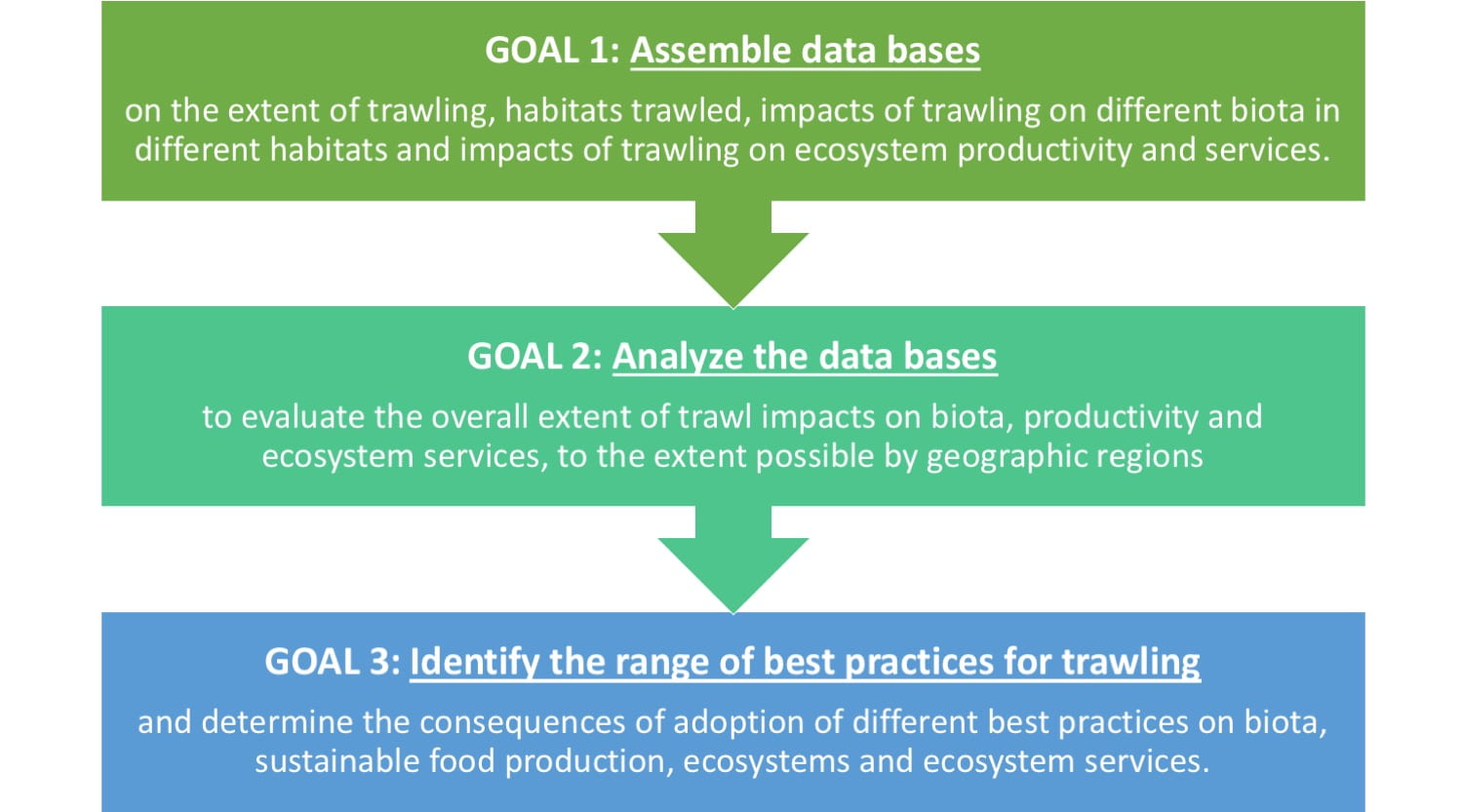Proposal
We propose to establish a working group of experts in ecology and fisheries management to provide a scientific basis for evaluating policies on trawling.
This proposal emerges from the ongoing concern about the impacts of bottom contact fishing gear, and the need for a synthesis of the scientific knowledge related to the issue. The most recent review of this subject was Hinz et al. in 2009, and since that study there has been considerably more mapping of seafloor habitats and knowledge of trawl effort distribution in a number of areas. There has been limited attempt to estimate the impact of trawl disturbance on the productivity of target species, and there have been considerable developments in trawl gear technology that need to be summarized and evaluated. Additionally, none of the earlier work attempted to define the consequences of a range of definitions of “best practice.” We do not anticipate any single definition of best practice, but what we should be able to provide is an evaluation of the consequences of different definitions of best practices.
We know that the impacts of trawling on biota are highly variable, with almost total ecosystem transformation in some biogenic habitats to no measurable impacts in highly disturbed habitats. Thus much of the discussion of trawl impacts has been totally distorted by “cherry picking” studies of one kind or another. The publication of an authoritative paper that summarizes the total range of knowledge, and most importantly looks at where trawling currently takes place will be of major significance.
In addition to the increase of scientific knowledge of the impact of trawling over the last 10 years, there is increasing interest from a wide range of stakeholders on the impacts of trawling. In discussions with NGOs and industry, the subject of trawl impacts is almost always a major issue. Assembling the scientific information in a single data base accessible to all is of interest to all concerned.
Goals
Timeline
The project will consist of 5 phases:
Outcomes
Defining the scientific information on best practices for trawling
We do not anticipate any single definition of best practice, but what we should be able to provide is an evaluation of the consequences of different definitions of best practices. For instance the two extremes would be a total ban on bottom contact gear, and no restrictions on bottom contact gear above and beyond those that are currently in place. For each of these extremes we can estimate the biological consequences measured by biodiversity changes and impacts on fish productivity, as well as the yield consequences. There are many possible “best practices” in between these two extremes, for instance a ban on bottom contact gear in specific sensitive biogenic habitats. We anticipate being able to evaluate the yield consequences of such a ban, at least for the areas where habitat and trawl effort are well mapped. It is our expectation that there will be some very clear cases where gear restrictions may have high biological benefits with low loss of yield. Such information is of paramount importance to processors and retailers looking for robust evidence on which to base their company buying policies.
Finding common ground between NGOS and Industry
Our working group team will be composed of scientists with a proven track record in marine fisheries and trawl impacts and younger researchers. To assure that the working group answers the key scientific questions of concern to stakeholders, we will hold a series of web based conferences with stakeholders where we will invite them to provide comment on the proposed work plan and as the work progresses to discuss results and conclusions. As the data bases develop these web conferences should provide an opportunity to find common ground between some of the NGO and industry groups who are willing to use data to reach conclusions about the extent of trawl impacts. We anticipate that a common data set will provide an opportunity for common ground among many of the parties that are truly interested in achieving sustainable marine fisheries management.


